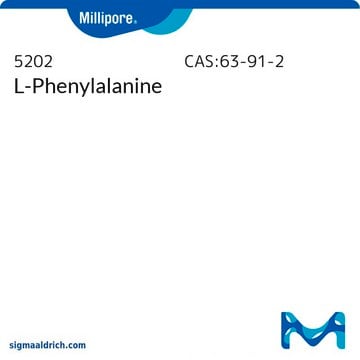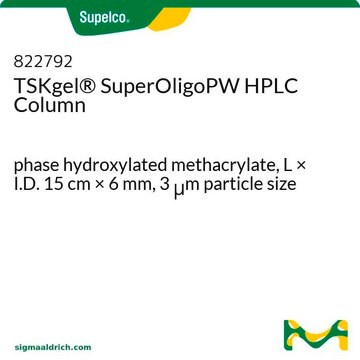P1751
D-Phenylalanine
≥98% (HPLC)
Synonyme(s) :
(R)-2-Amino-3-phenylpropionic acid
About This Item
Produits recommandés
product name
D-Phenylalanine, ≥98% (HPLC)
Niveau de qualité
Pureté
≥98% (HPLC)
Forme
powder
Couleur
white to off-white
Pf
273-276 °C
Application(s)
cell analysis
Chaîne SMILES
N[C@H](Cc1ccccc1)C(O)=O
InChI
1S/C9H11NO2/c10-8(9(11)12)6-7-4-2-1-3-5-7/h1-5,8H,6,10H2,(H,11,12)/t8-/m1/s1
Clé InChI
COLNVLDHVKWLRT-MRVPVSSYSA-N
Vous recherchez des produits similaires ? Visite Guide de comparaison des produits
Application
<li><strong>Paper Title: </strong> Supramolecular nanofibers co-loaded with dabrafenib and doxorubicin for targeted and synergistic therapy of differentiated thyroid carcinoma. D-Phenylalanine are used to improve the stability of peptides <em>in vivo</em> (Chen P et al., 2023).</li>
<li><strong>Paper Title: </strong> Mechanistic aspects of the transamination reactions catalyzed by D-amino acid transaminase from Haliscomenobacter hydrossis. This study focuses on the enzymatic roles of D-Phenylalanine in specific bacterial transamination processes, applicable in biocatalysis and synthetic biology (Bakunova AK et al., 2023).</li>
</ul>
Code de la classe de stockage
11 - Combustible Solids
Classe de danger pour l'eau (WGK)
WGK 1
Point d'éclair (°F)
Not applicable
Point d'éclair (°C)
Not applicable
Équipement de protection individuelle
Eyeshields, Gloves, type N95 (US)
Certificats d'analyse (COA)
Recherchez un Certificats d'analyse (COA) en saisissant le numéro de lot du produit. Les numéros de lot figurent sur l'étiquette du produit après les mots "Lot" ou "Batch".
Déjà en possession de ce produit ?
Retrouvez la documentation relative aux produits que vous avez récemment achetés dans la Bibliothèque de documents.
Les clients ont également consulté
Chromatograms
application for HPLCNotre équipe de scientifiques dispose d'une expérience dans tous les secteurs de la recherche, notamment en sciences de la vie, science des matériaux, synthèse chimique, chromatographie, analyse et dans de nombreux autres domaines..
Contacter notre Service technique








